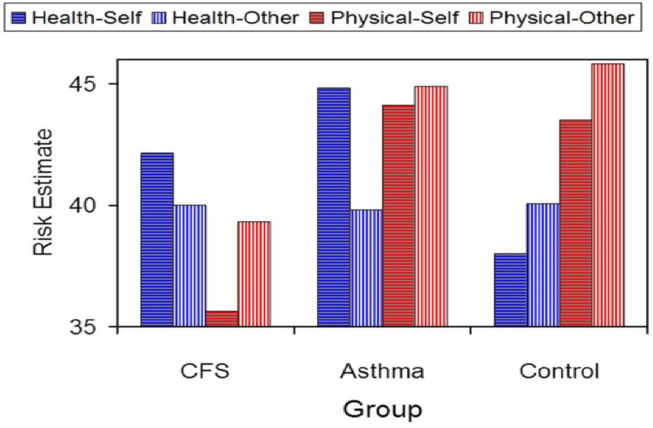No CrossRef data available.
Article contents
EPA-0907 – Perceived Illness Risk in Chronic Fatigue Syndrome (CFS/ME) and Asthma
Published online by Cambridge University Press: 15 April 2020
Abstract
Most people perceive their own future as more positive than the average person's. This optimistic bias may be a concern if it leads to people misjudging health threats and therefore the need for taking preventative steps.
To investigate the generality of recent observations of a reverse, pessimistic bias (i.e., perceiving oneself to be more at risk) in people with Irritable E
The aims are to discover if a pessimistic bias is also found in another psychosomatic condition (CFS/ME) or in another chronic illness (Asthma).
CFS/ME and Asthma patients were compared with healthy controls (matched in age and sex) for their perceived risks of health threats (e.g., arthritis) and threats (e.g., being burgled), for self and for others.
The results for the 3 groups are shown in the graph.

People with CFS/ME tend towards the possession of a pessimistic bias with regard to health threat, but towards an optimistic bias with regard to physical Asthma group tend towards a pessimistic bias with regard to health threat, but tend to be neither optimistic nor pessimistic with regard to physical threat. control group tend towards an optimistic bias with regard to both health and physical threats. Thus, it appears that people with a chronic condition tend toward pessimistic bias, as opposed to the optimistic bias found in the healthy. Materials devised to promote appropriate health-related behaviour may need to be the two different populations.
- Type
- P02 - Anxiety Disorders and Somatoform Disorders
- Information
- Copyright
- Copyright © European Psychiatric Association 2014





Comments
No Comments have been published for this article.